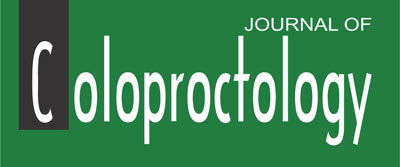ABSTRACT
Objective:
To describe the partial results of a study in patients with rectal cancer who underwent neoadjuvant treatment with chemotherapy and radiotherapy regarding the rate of complete clinical response, disease-free survival, anorectal function, and quality of life.
Material and methods:
This was a prospective study from June 2015 to June 2018, in patients with low- or mid-rectum adenocarcinoma and clinical stage II or III, treated with radiotherapy and chemotherapy (IMRT 54 Gy for six weeks) concomitant with 5-fluorouracil (5-FU) 380 mg/m2 and folinic acid (LV) 20 mg/m2 for five days in the first and fifth weeks and two cycles after radiotherapy (5-FU 400 mg/m2 and LV 20 mg/m2) every 28 days. After the treatment, clinical examination, rectosigmoidoscopy, pelvic magnetic resonance imaging, chest and upper abdomen computed tomography, and CEA testing were performed. Resection surgery was performed in those with incomplete clinical response (iCR). Those with complete clinical response (cCR) are under observation (wait-and-see policy). Manometry and scintigraphic function and quality of life scales were collected before treatment and at 30 and 90 days after the end of treatment.
Results:
As of June 2018, 11 patients were recruited. One was excluded from the analysis for presenting severe toxicity, suggestive of dihydropyrimidine dehydrogenase (DPD) deficiency, after the first chemotherapy cycle. All others completed the treatment. Two patients presented toxicity grade 3/4 related to chemotherapy and had their doses reduced. Seven patients (70%) presented iRC; three underwent rectosigmoidectomy, and the anatomopathological evaluation indicated complete pathological response in two cases (28.5%). Three (30%) presented cCR and did not present evidence of disease after a mean follow-up of 19 months. Patients presented improvement of anorectal function and quality of life.
Conclusions:
Advances in the neoadjuvant treatment of rectal tumors contributed to better rates of complete pathological responses. New paradigms promote an increase in the complete clinical response rates, which would allow organ preservation and consequent reduction of surgical morbidity.
Keywords:
Quality of life; Rectal surgery; Wait-and-see policy; Rectal cancer



